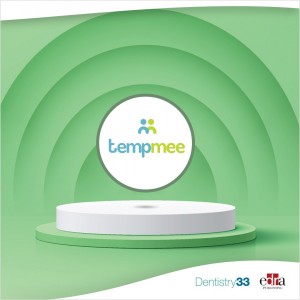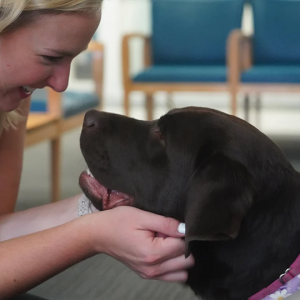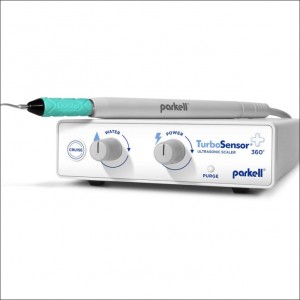
Oral hygiene in Italian nursery schools
Lara Figini
At birth, the oral cavity is sterile, but from the first moments of life it is colonized by bacteria which become commensal microorganisms.
Oral hygiene is essential to maintain a healthy mouth at any age and involves both the cleaning of the teeth and the soft tissues (mucosa and gums), to favor the elimination of food residues and bacteria.
From birth, oral hygiene is therefore crucial in the prevention of diseases such as caries and periodontitis. Unfortunately, however, oral hygiene in newborns, before the first teeth appear, is often neglected. This can create health issues, because the milk given to infants, of whatever type, contains sugars.
The oral hygiene technique adopted should be appropriate for the child's age, according to the following criteria:
- for babies up to eight months, a gauze soaked in physiological saline solution or water can be used to gently rub the gums, removing bacterial plaque, traces of milk and, once the baby is weaning, also food residue
- later, when the first milk teeth appear, it is good to use specially designed silicone toothbrushes instead of gauze, and
- after 24 months, dentists recommend the use of an age-appropriate toothbrush.
Another fundamental aspect in oral prevention is diet. Foods rich in sugars or ones that are highly acidic, in addition to being incorrect from a nutritional point of view, favor caries especially in the first teeth as the primary enamel is less mineralized than that of the permanent teeth.
For these reasons, parents in the first years of their children's life and professionals who take care of the little ones, such as kindergarten educators, must receive the right information on this topic from professionals, such as oral hygienists. In doing so, they will be properly educated and more aware of the dietary aspects and oral hygiene practices to be implemented.
Materials and methods
In a study published in Frontiers in Oral Health in January 2023, the authors evaluated the attention and notions of oral hygiene and care of those who take care of children aged up to age three, obtaining data from educators who they work in nursery schools with subjects of this age group. Information on oral hygiene practices adopted in kindergartens and the types of food provided was also collected, with the aim of increasing knowledge and awareness on this topic.
A questionnaire was created and sent to all 47 nursery schools in the city of Pavia and Vigevano in Italy.
Results
Some 20 kindergartens agreed to participate in the research study. The analysis of the degree of knowledge and awareness about oral care among early childhood educators with reference to the age group revealed variability and confusion.
The results showed a general lack of attention to oral care in the period before the appearance of baby teeth, as well as the limited use of gauze pads for the maintenance of oral health in such young children.
In kindergartens we rarely have the support of a professional dental hygienist to raise awareness among educators and parents of the importance of oral hygiene from early childhood.
Conclusions
From the data of this study, it can be concluded that in the area of the interviewees there is a lack of widespread knowledge and awareness of the importance of prevention and oral care in young children up to three years of age. There is also a lack of information about appropriate techniques for maintaining oral hygiene and the importance of proper nutrition in this age group.
Researchers said that their findings suggest a need to develop preventive protocols to improve knowledge and awareness of children's oral health among the adults who care for them.
For more information on the study: "Oral hygiene practices in nurseries (0-3 years) in the cities of Pavia and Vigevano."
 Related articles
Related articles
News 08 August 2025
New Interactive Map Designed to Streamline Licensure Guidance for Dental Hygienists
ADHA and CareQuest Institute partner to launch comprehensive tool consolidating key information to improve navigation of state requirements.
Products 30 January 2025
Concorde Career Colleges and Imagen Partner to Empower Dental Hygienists of Tomorrow
Concorde Career Colleges recently announced a workforce solutions partnership with Imagen Dental Partners to address the demand for dental hygienists in California.
Products 12 November 2024
PDS Health, a leading dental and medical support organization, proudly recognizes National Dental Hygiene Month, a time dedicated to honoring the vital role and impact dental hygienists have in...
Editorials 03 November 2023
Presto Smile, a leading innovator in dental technology, is thrilled to announce the upcoming launch of its proprietary AI-powered platform in January 2024. This groundbreaking development will assist...
Celebrated each October, National Dental Hygiene Month honors the work and dedication of registered dental hygienists (RDHs) while raising awareness for oral health.
 Read more
Read more
Periodontology 27 January 2026
The Forefront of Dentistry—Promising Tech-Innovations and New Treatments
Change in our world is happening quickly. For dentistry, this is no exception, and now is the time to foster new opportunities.
CU Anschutz School of Dental Medicine celebrates a wellness initiative that’s reducing anxiety one wagging tail at a time.
Products 27 January 2026
Parkell, a recognized global leader in dental materials and equipment manufacturing for more than 75 years, proudly announces the launch of the new TurboSensor®+ 360, the next generation of its...
News 27 January 2026
DentalXChange, a leading provider of revenue cycle management for the dental industry, is proud to announce the expansion of its Executive Leadership Team with Alan Stein as Chief Solutions Officer.
Dr. Shilpi Joshi, DMD, BDS, FICD, FPFA, has been named the recipient of the 2026 Lucy Hobbs Project Humanitarian Award (Humanitarian Category), recognizing her lifelong commitment to compassionate,...















